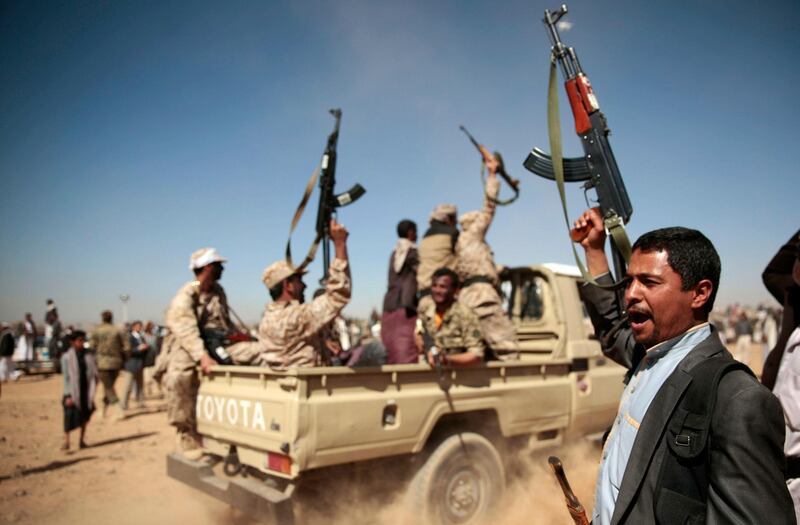The UK government has rejected criticism by the House of Lords over arms sales to the Saudi-led coalition fighting Houthi rebels in Yemen, and slammed Iran’s interference.
The government said it held “longstanding concerns” about Iranian involvement in Yemen, particularly reports that Tehran gave the Houthis missiles and drones.
This threatened regional security and risked prolonging the conflict, it said in response to a House of Lords report.
“We call on Iran to cease activity that risks escalating the conflict and to support a political solution to the conflict in Yemen,” the government said.
It quotes reports by the UN's panel of experts that confirmed Iran was failing to comply with UN Security Council resolutions enacted to stop the conflict.
“We must not forget that the Houthis have consistently failed to adhere to UN Security Council resolutions and routinely obstruct humanitarian access, including the UK’s own programmes, and divert aid for their own uses,” the government said.
The government denied the claim by Lords that it was “narrowly on the wrong side of the law,” insisting it was “operating one of the most robust export control regimes in the world”.
“We also have a longstanding diplomatic and defence relationship with Saudi Arabia, which pre-dates the Saudi-led coalition’s military intervention to restore the legitimate government of Yemen to power,” it said.
The “horrific situation" in Yemen began when the Houthis seized the capital Sanaa in September 2014 from the internationally recognised government.
The British government stressed its support for UN special envoy Martin Griffiths and repeated its commitment to last year's Stockholm agreement, which sought a ceasefire in the vital port city of Hodeidah.
The House of Lords report, published in February, said there was an apparent contradiction between selling arms to the coalition and giving humanitarian aid.
Britain is planning to donate £200 million of humanitarian aid for the 2019-2020 financial year.






